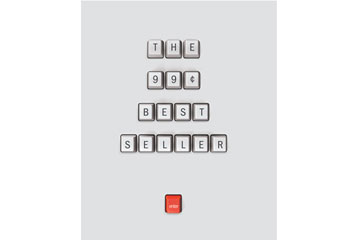
The RT booklovers convention is an annual festival of lust, sisterhood and marketing, attended by thousands of writers and readers of romance fiction. This year's edition, held in Chicago, featured nighttime revels with bare-chested male models and seminars with titles like Beyond the Bodice. But to see its real, throbbing center of passion, you had to jam into a packed room where dozens of authors were talking mathematics: the profit calculations behind the digital-driven phenomenon of self-publishing.
"Romance is hot," said speaker Mark Coker, one of the few men in a room full of women--some dressed in character in 19th century finery. Coker is the founder and CEO of Smashwords, a Silicon Valley--based Internet company that allows authors to publish and distribute e-books directly to devices like the Kindle and the iPad. Like other digital entrepreneurs, he's discovered that there's a huge market in catering to female readers' desires. This year's most shocking literary success, E.L. James' erotic novel Fifty Shades of Grey, grew out of Twilight fan fiction and was first published by an obscure online start-up called the Writer's Coffee Shop before becoming a viral e-book phenomenon, building a following through whispers and Web clicks. To Coker and his audience of would-be romance novelists, Fifty Shades wasn't just a titillating read; it looked like a harbinger of the future of publishing.
Once a frustrated novelist himself, Coker believes that authors no longer need traditional publishing houses to reach a large buying audience. He urges writers to be their own marketers and distributors, telling them to "imagine a book with dozens of knobs and dials" like plot, title and price. Each of them can be calibrated to capture one of the most powerful forces in publishing: the algorithms behind online book recommendations. His audience scribbled notes as he went through a PowerPoint presentation based on his sales data. It tracked everything from word of mouth to the optimal price for fiction--3 per 1,000 words, Coker said.
In the book business, doing it yourself has long been considered an act of desperation. "When I first started thinking about a writing career, self-publishing was not what you wanted to do because you'd get a bad rap," said aspiring author Beth James, a Minnesota state worker who road-tripped to the conference with a friend, a librarian interested in writing erotica. But Amazon's introduction of the Kindle in 2007 completely changed the literary equation, allowing authors to approach readers directly while keeping a larger share of the royalties. Amazon says such books accounted for 30 of its top 100 sellers in October. Self-published titles now regularly appear on the New York Times' e-book best-seller list; four were in the top 25 on Thanksgiving weekend, the beginning of the holiday book-shopping season.
